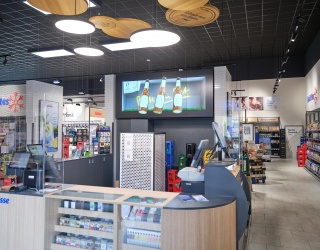
For cardholders, not needing to sign creates a faster and more streamlined point of sale experience. Today, consumers experience this when they tap to pay contactless card payments are quick, secure and don’t often require a signature.
This decision is aligned with evolving consumer preferences. In a survey conducted in the U.S., only 40 percent said they had signed the back of their cards, and one-third of those who haven’t signed said they don’t see the point in doing so. In the same survey, more than half of respondents believed they were just as secure without signing the back of their cards, and two-thirds wanted biometrics to replace signatures, passwords and PIN codes when paying with their card.
“With modern, advanced forms of authentication now available, removing the requirement for signature capture at the point of sale and now signature panels on Mastercard cards is an important step in support of our digital evolution,” said Linda Kirkpatrick, executive vice president, U.S. Merchants and Acceptance, Mastercard. “Issuers, merchants and cardholders will benefit from this change as faster, safer options improve satisfaction and increase sales.”
As advancements in technology and security change how people pay and verify their identity, Mastercard today announced that cardholder signatures will now be optional, both on the card and on receipts.
Starting in April 2019, Mastercard issuers globally will no longer be required to include a signature panel on the back of Mastercard products. This change follows the move to allow merchants the option to collect cardholder signatures for in-store purchases. Mastercard led the industry with this announcement in the U.S. and Canada last fall, and now extends this option to merchants around the globe.
“We see this as a win for all. The investments we’ve made in technology like artificial intelligence and biometrics are what’s powering this next step,” said Ajay Bhalla, president, cyber and intelligence solutions, Mastercard. “We believe our merchant and issuing partners everywhere will embrace the ability to deliver a simpler checkout experience while maintaining the highest levels of security.”
Eliminating the need for signatures is part of an important shift toward advanced security technologies such as EMV® chip, contactless payments and advanced fraud management technologies. These innovations provide both greater security and a simpler, more convenient payment experience. In addition, consumers remain protected against fraud by Mastercard Zero Liability coverage.
“Signature has been an obsolete form of authentication for quite some time, and removing the signature panel from the cards will reinforce the need for all stakeholders to leverage truly effective authentication technologies to address fraud,” said Mike Cook, Walmart senior vice president and assistant treasurer.
“Convenience and security are essential to the payment experience we provide our clients. As part of our ongoing relationship with Mastercard, we are excited to offer our clients credit cards they can use with ease, and with confidence that their credit card transactions are secure,” said Jason M. Rudman, KeyBank Head of Digital and Consumer Payments.









